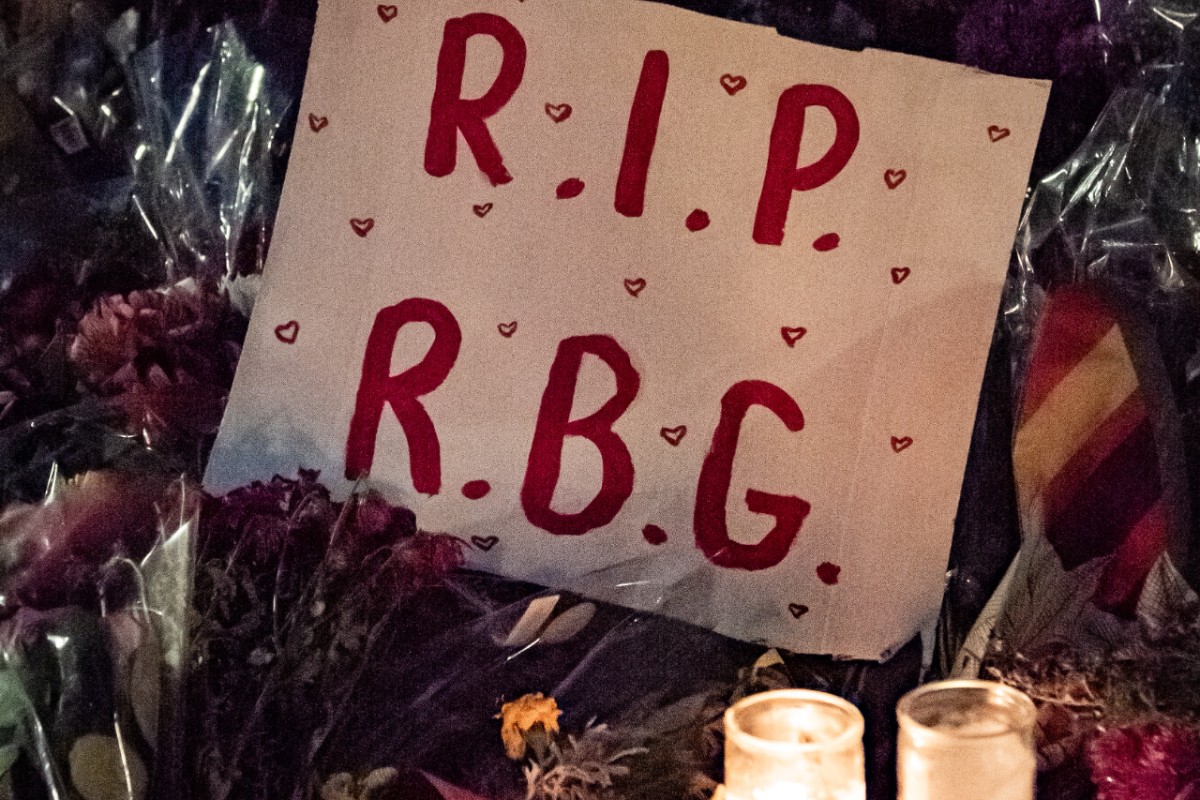
By Jennet Robinson Alterman, special to Statehouse Report | The media in the last few days have been full of accolades about Justice Ruth Bader Ginsburg. None of the praise has been hyperbole. This diminutive woman was a giant for justice, never wavering in her commitment to justice for reproductive health care, pay equity, civil rights, access to health care, immigrants, nondiscrimination on the basis of sex. The list goes on and on.

Her entire life encompassed battles for equality. Though brilliant, she had difficulty finding a job after law school in the 1960s because she was a woman, a mother and a Jew. Largely thanks to her determination and legal work, women today do not face these same obstacles.
RBG continued to be the feminist’s feminist at an age when most people start slowing down and considering a softer more reflective life. Yet she thrived in her work as a Supreme Court justice right up to the end of her days.
Especially noteworthy was her ability to manage her profession and her family, often getting no more than three hours of sleep at night. Excelling in every role, she readily admitted, “You can’t have it all,” but she actually did. Her husband, Marty, was her true partner and cheerleader. He never wavered in his support of her and she never took him for granted.
An important part of her legacy was her ability to play well with others. One example is her longstanding friendship with her polar ideological opposite, Justice Antonin Scalia. They attended the opera together and sometimes took to the stage as extras. They both loved gourmet cuisine and traveled together, once riding elephants in India. They and their families toasted many New Year’s Eves together. Justice Scalia once said of her, “They call us the odd couple. She likes opera, and she’s a very nice person. What’s not to like? Except her views on the law.”
Justice Ginsburg and her friend and colleague found common ground in the arts and music. They found that they could disagree without resorting to character assassination or partisan politics. They behaved like adults. If we are to learn anything from their friendship it is to always respect and honor each other’s differences.
I implore our elected representatives and political candidates to take many pages from their book. Set aside the partisan politics and instead come together to address the outsized crises our country faces right now. Craft a robust and unified response to handling the pandemic.
Provide financial help to the Americans most in need. Stop the attack ads and instead put those resources toward protecting the American people before it is too late. Don’t let our planet self-destruct over the overwhelming climate crisis.
What a tribute it would be to Justice Ginsburg if our politicians could work together for our common good. Let’s pull together for a change. Upon Scalia’s death, Ginsberg wrote, “We are different, we are one. Different in our interpretation of written texts, one in our reverence for the Constitution and the institution we serve.”
RBG was able to overcome obstacles, advocate for the underserved, and cross over immense political differences to improve justice in our country. We may not possess her intellect and wisdom, but surely we can strive to emulate some of the lessons she has left us.
May her memory be a blessing.
Jennet Robinson Alterman chairs the city of Charleston Commission on Women and is the founding chair of the Women’s Rights and Empowerment Network. She served as the executive director of the Center for Women from 2001 to 2013. This commentary was first published in our sister publication, the Charleston City Paper.
















 We Can Do Better, South Carolina!
We Can Do Better, South Carolina!